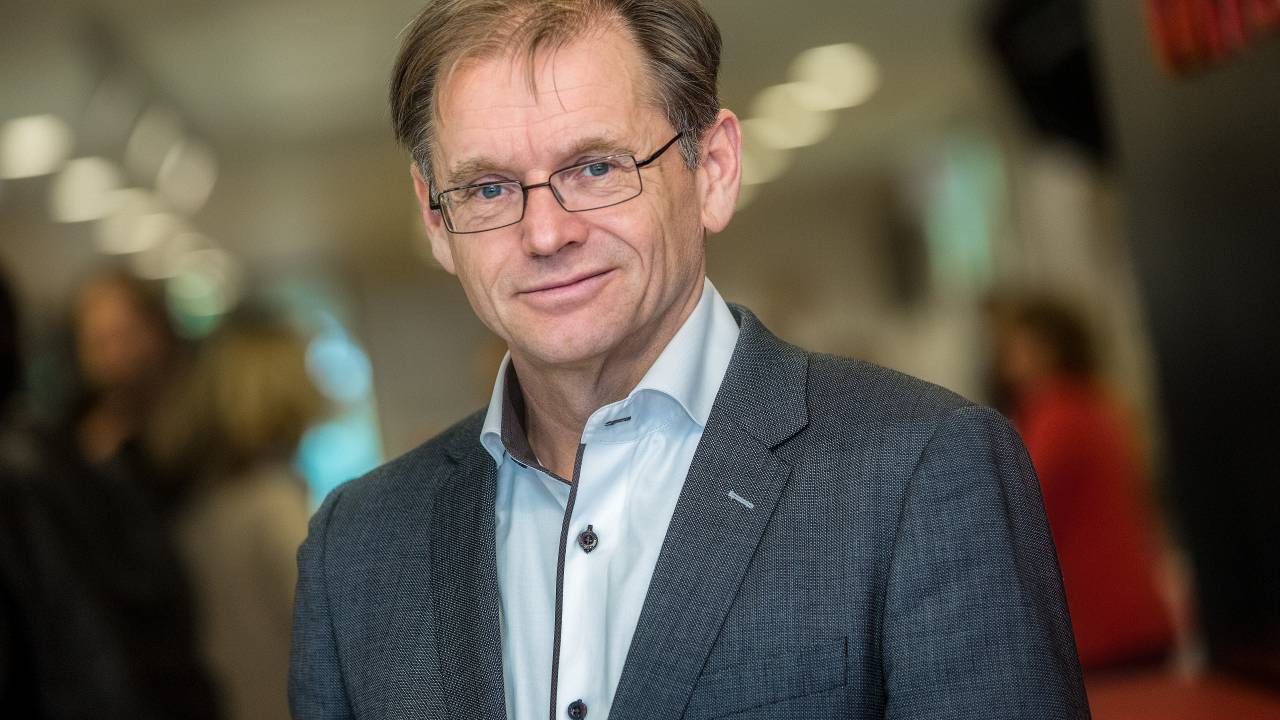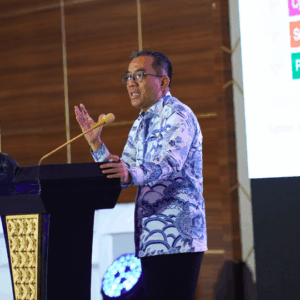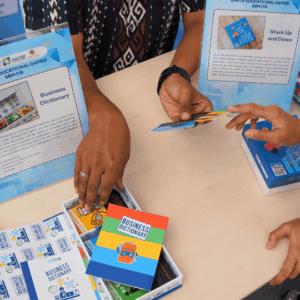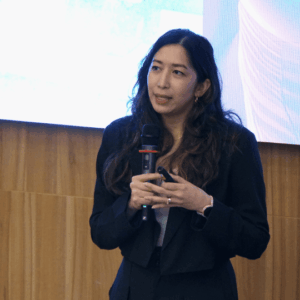SBM ITB, through the Jakarta MBA study program, held a series of discussion activities with Rob van Tulder, Professor of International Business Society Management Rotterdam School of Management Erasmus University Rotterdam. The event was hybrid from MBA Jakarta, Graha Irama and ZOOM on from 24 to 26 November 2022. This series of activities discussed business sustainability from all sides, including business or business education.
Rob started the discussion by reflecting on the G20 and COP27 activities for sustainable business. This activity also invited the Managing Director of Jababeka Infrastructure and Deputy Chair of the Energy, Sustainability, Climate Task Force of B20 Indonesia 2022 Agung Wicaksono and VP of Pertamina Energy Institute Hery Haerudin.
Rob said that the G20 Summit, held last November, became one of the cornerstones of climate policy. During the Indonesian presidency, the G20 agreed to further strengthen the existence of the SDGs. Several points of the G20 leaders’ agreement have also shown that but action is needed on each of these points.
Meanwhile, for the COP 27 Summit, there are still many things that have not been achieved. The maximum temperature increase target of 1.5 degrees Celsius is threatened with failure due to calls to stop the use of fossil fuels due to the refusal of oil-producing countries, complicated emission negotiations due to the use of different criteria for targets for each country until the unclear agreement on loss and damage funds.
“From several aspects, this deal has not improved much. Such as mitigation has not been properly discussed, the adaptation aspect has slightly improved, but the compensation for climate victims has not been satisfactory,” said Rob in his presentation.
Agung Wicaksono, in his presentation, explained that the B20, the G20 business communication forum, is currently focusing on green energy transition and strengthening equality according to the SDGs guidelines. Several steps are being prepared and carried out, such as the steps by Jababeka for the Indonesian presidency in preparing the first net zero industrial areas in ASEAN.
This seems to give a new breath to the industrial sector, which wants to keep going and support a sustainable business. This concrete collaboration with Pertamina, Hitachi, Unilever and Loreal is expected to be an effort to support the green energy transition in Indonesia.
Hery Haerudin added that currently, Pertamina is trying to participate in the energy transition. Pertamina is involved in the Grand National Energy Strategy by becoming the largest part that will be implemented in 2020-2024. Pertamina is also preparing a strategy to support the SDGs and net zero emission in 2060, such as business decarbonization and the renewable energy business portfolio.
On Friday (25/11), Rob discussed methods for teaching aspects of sustainability (SDGs) to business school students. Also present were lecturers from SBM ITB and other lecturers invited to this activity.
According to Rob, now businesses must be able to move from the CSR 1.0 (Corporate Self Responsibility) model to CSR 4.0 (Corporate Sustainable Responsibility). Therefore, teachers should start to understand more deeply about the SDGs themselves. Teachers must be more adaptive in teaching sustainability, so students can easily understand it.
“Steps taken in teaching sustainability are starting with discussing the social logic of the approach and its relevance in the realm of business schools, then explaining theoretical relevance according to the basic principles of sustainability, and learning from each other’s experiences,” he added.
Rob closed the series of public lecture activities with Business Leadership Executive MBA ITB Jakarta students. He again discussed sustainable aspects in leadership and government policies on Saturday (25/11/2022).
In this closing series, Rob said that the world has now changed and requires us to look to the future to face all challenges. Challenges like climate change seem to be a ghost for all future aspects. Therefore, we need to change our perspective as agents of change to be more sensitive to business and government policies that we may decide later.
“All policies taken should be guided by the Sustainable Development Goals (SDGs), which can help us produce sustainable policies,” said Rob.
He stressed that if a leader doesn’t care about sustainable aspects guided by SDGs, the storms caused by climate change may befall us. According to him, the SDGs can help us strengthen our business, making our business more adaptive and competitive.
The worst thing that could have happened could have gotten us to become a bad corporation or go bankrupt. Therefore, this sustainable aspect needs to be considered carefully for the sake of business continuity in the future.






